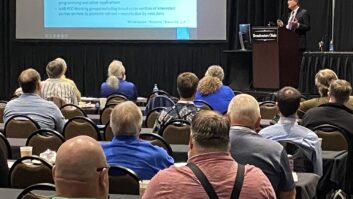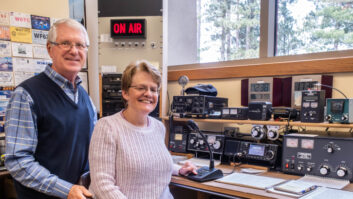
PHOENIX — Thirty years is a long time to serve a community, and after nearly three decades, Art Brooks has decided to retire as president and CEO of the Arizona Broadcasters Association at the end of this year.
Brooks leaves some pretty big shoes to fill, and a long list of accomplishments.
He started the ABA Hall of Fame to recognize notable Arizona broadcasters, and at the same time, raise money to help fund journalism scholarships. Brooks also created programs to provide member stations with access to sales training and legal help. Additionally, he founded one of the nation’s first journalism school aimed at Native Americans, the Native American Broadcast Journalism Institutes for high school students at Northern Arizona University.
Through his leadership, Brooks raised awareness statewide on the impact of drug abuse. Arizona broadcasters make history in 2008 with the award-winning 30-minute documentary, “Crystal Darkness.” Arizona was the first state in the nation to bring its broadcasters together to address a major social issue through the “roadblock” — a program, designed to raise awareness of the impact of methamphetamines, aired on all Arizona television stations and most radio stations at the same time.
Then again in 2015, a similar partnership tackled the state’s growing heroin addiction and in 2017 addressed the devastating impact of prescription drugs. During each of the programs, a call center was set up with counselors to help those in need. “We averaged 1,500 to 2,000 calls over three hours,” added Brooks.
During his tenure, Brooks led a committee of broadcasters and law enforcement to develop a plan which ultimately became the state’s AMBER Alert program. The program has assisted in the speedy recovery of many endangered children. Brooks served as the state coordinator from 2002-2018, before the duty was passed off to law enforcement.
Recalling the major milestones for broadcasters during his tenure, he notes the 13-year transition from analog to digital for the television industry, as well as the monumental transformation that took place in radio following the 1996 change in ownership rules.
Reflecting on his long tenure with the ABA, Brooks noted, “Local broadcasters have a unique and very special role in our society, one that not only involves the business part of broadcasting, but also community involvement, and the responsibility — and honor — of serving our listening and viewing public. I care deeply about the industry and the organization I have been blessed to serve all these years and am looking forward to a smooth and successful transition.” He adds that none if it would have been possible without the tremendous support from the many ABA boards of directors he served with over the years.
This coming August, Brooks will celebrate his 46th year in broadcasting. That begs the question, what’s next after ABA? “I really don’t have anything mapped out or planned,” said Brooks. “I’m definitely not retiring in the traditional sense. I’ll just see what happens next.”












